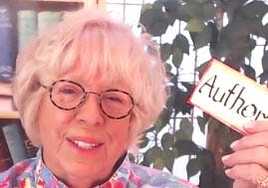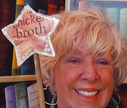|
Most writers experience sweaty palm terror when they first begin to write a query letter. Since misery loves company, I suggest you share a query exercise to help you, and everyone in your writing group, give up query fear.
Here's how it works. Regardless of whether or not manuscripts are complete, everyone writes a 350-word query letter and brings it to the meeting. Then, one by one, it's the "hot seat" experience. As each query is read, it's evaluated based on query information found on this website. The purpose of this exercise is to encourage you to think through the bigger picture of your story as you reveal the protagonist's goal, obstacle (s), and resolution: a practice that often reveals plot or character issues that need to be addressed. NOTE: Memoir writers: craft your query as if it's a fiction story. You can tweak it into standard memoir format later.
0 Comments
Recently, I've been asked to assist three authors escape from the clutches of publishers who really weren't publishers. These author/publishers wanting to sell more of their own books by falsely enticing other writers to join their ranks. Unfortunately, the author/publishers had no publishing training, no skills in marketing or promotion, and had no relationships with any retail outlets other than Amazon.com . They knew zero about the business of publishing. What they did have were websites that made them appear to be honest-to-goodness publishers. Their authors' books were on Amazon. So far so good. But, when I looked inside their published books, right away I spotted tons of writing mechanic errors, crowded pages, small margins, amateur covers. All issues of self-published books, which these were.
Here's the problem. When the three writers in question realized they'd been snookered, they couldn't get away from the author/publisher. Why not? They'd signed a contract giving away all rights to the author/publisher . . . like, forever. Yikes. So be warned. It's understandable. If you pitch to a "publisher" at a writers' conference, and they offer you a contract, you'll feel excited and flattered. But . . . before you sign on the dotted line, perform due diligence. Check out the publisher, contact their authors, look inside the books (and thank you Amazon for that). Most importantly, hire an agent or literary attorney to look at the contract. Believe me, it's cheaper to determine if a publisher is legit before you sign over your book (and youngest child), than to retain an attorney to help you regain the rights to the book you've created. BTW: just because you meet an author/publisher at a writers' conference, this doesn't mean they've been vetted, unless the conference is sponsored by a national and well-regarded group like Writer's Digest (for example). State and local writers' organizations with limited budgets are so happy to host "publishers" at their events, they don't check them out thoroughly, or at all. |
If you’d like to re-post any of my blogs, help yourself. Please reference the source as: Molli Nickell. THE Publishing Wizard at www.getpublishednow.biz Archives
July 2016
Categories |


 RSS Feed
RSS Feed
